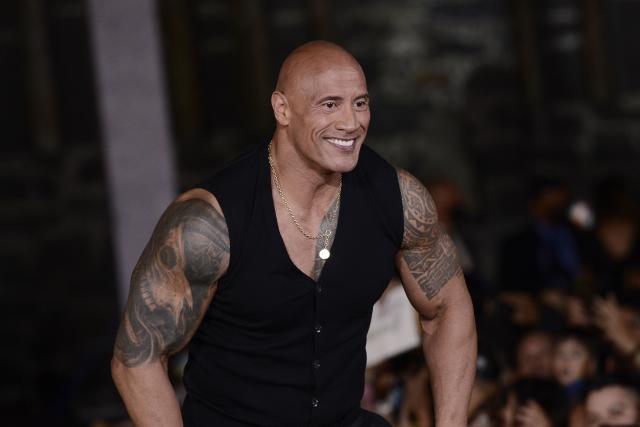The glitz and glamour of Hollywood often mask the challenges and tensions that can arise behind the scenes of a major production. In recent headlines, allegations regarding Dwayne Johnson’s conduct on set have stirred up a storm of controversy, shedding light on the complexities of working in the entertainment industry.
According to reports, tensions flared between Johnson and his co-star, Ryan Reynolds, during the filming of the Netflix movie “Red Notice.” The Rock’s purported tardiness reportedly became a bone of contention, with Reynolds confronting him about the impact on the shooting schedule, already strained by the constraints of the COVID-19 pandemic. While initial reports suggested a confrontation, subsequent statements indicate that the actors resolved their differences amicably. Such incidents, while not uncommon in high-pressure environments, underscore the professionalism required to navigate collaborative projects successfully.
However, the allegations didn’t stop at punctuality. Sources have claimed that Johnson’s habitual lateness extended to other projects, notably the upcoming action-adventure comedy film, “Red One.” Reports suggest that his delays resulted in significant cost overruns and logistical challenges for the production team. Such accusations paint a picture of disruption and frustration behind the scenes, highlighting the ripple effects of individual behavior on the collective endeavor of filmmaking.
In addition to tardiness, more eyebrow-raising claims have emerged, including accusations of Johnson urinating in water bottles on set to save time. While such anecdotes may seem sensational, they serve as a reminder of the unconventional demands and pressures faced by actors amidst grueling shooting schedules. However, it’s essential to scrutinize these allegations critically, recognizing the potential for sensationalism and exaggeration in media narratives.
Amidst the swirling controversy, official statements from Amazon MGM Studios have vehemently denied the allegations of chronic tardiness, emphasizing Johnson’s integral role in the production process and dismissing reports as unfounded. Similarly, individuals close to the production have refuted claims of Johnson’s alleged delegation of disposing of urine-filled bottles to assistants, asserting his professionalism and respect for colleagues.
Ultimately, these revelations offer a glimpse behind the curtain of the entertainment industry, where the glamour of the silver screen intersects with the realities of human dynamics and logistical challenges. While conflicts and controversies may arise, the collaborative spirit and dedication of individuals like Dwayne Johnson underscore the resilience of the industry in delivering captivating stories to audiences worldwide. As the spotlight shifts to future projects, the lessons learned from these experiences serve as a reminder of the importance of communication, professionalism, and mutual respect in navigating the complexities of creative collaboration.


